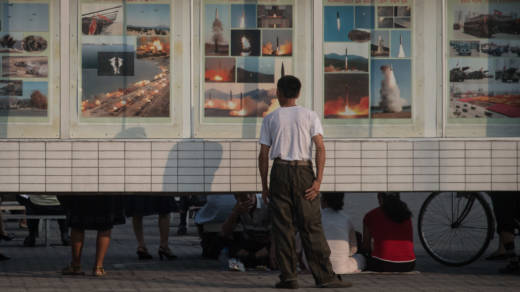It also comes less than two weeks after the South Korean government made a rare diplomatic overture to Pyongyang, seeking new military talks with Kim Jong Un's regime. That offer was never accepted.
Much of the international community has long tried another tack to slow North Korea's weapons program: sanctions for violating international law with its missile tests. But NPR's Elise Hu notes that approach has proved less successful than hoped for:
"Despite 'tough-on-paper' sanctions designed to stop the flow of nuclear weapons material into North Korea as well as to deliver economic punishment on the regime, the latest research shows the numerous countries expected to enforce the sanctions aren't doing so. The reasons the sanctions have fallen short include: The sanctions are too complicated to implement, private businesses independently aid North Korea (knowingly or not), and Pyongyang has grown increasingly deft in evading sanctions as it has become more isolated."
The long-running animus between North Korea, its neighbors and the U.S. has only escalated in recent weeks, with the rivals trading increasingly barbed words.
North Korea is "the single most dangerous threat facing the international community right now," Gen. Mark Milley, the chief of staff of the U.S. Army, told the National Press Club on Thursday. "It is clear, based on [the ICBM launch] over the July 4 weekend, that North Korea has advanced significantly and quicker than many had expected."
He added that North Korea's military threat is "the one thing I'm worried about."
"A war on the Korean peninsula would be highly deadly. It would be horrific," Milley said. "The United States military, in combination with the South Korean military, would utterly destroy the North Korean military — but that would be done at high cost in terms of human life."
In his statement Friday, Davis reaffirmed U.S. support for its allies in the region.
"Our commitment to the defense of our allies, including the Republic of Korea and Japan, in the face of these threats, remains ironclad," Davis said. "We remain prepared to defend ourselves and our allies from any attack or provocation."
Copyright 2017 NPR. To see more, visit http://www.npr.org/.
9(MDAxOTAwOTE4MDEyMTkxMDAzNjczZDljZA004))

9(MDAxOTAwOTE4MDEyMTkxMDAzNjczZDljZA004))